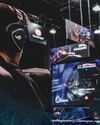
Tempting but poisonous. Only a company like Apple could have suggested such a thing about 'sideloading'. And only a company like Apple could have fallen on people happily lazing under the tree - posing a question worth pondering and waking up for. The reasons behind Apple's long-standing criticism of its 'walled garden' approach to business are well understood. Some attribute it to the high total cost of ownership of an Apple device, while others express concern over the 'right to repair' issue. Whether fair or not, successful or not, these arguments have consistently subjected Apple to intense scrutiny.
However, recently, this closed fortress has faced mounting pressure to 'open up' from both regulators and consumers. An example of this is Apple's new posture on sideloading, which is now being confronted with more stringent regulations from the European Union. Allowing users to download apps from sources outside the App Store may soon become a reality, albeit initially only within the EU, courtesy of the EU's Digital Markets Act (DMA). This potential change carries significant implications for Apple.
Viewed through Apple's lens, the prohibition of sideloading could be construed as a proactive security measure undertaken by the company. However, viewed through a different lens, allowing sideloading could mean opening the garden to bees and butterflies that contribute to its vibrancy and beauty. Perhaps it is time to examine this issue through the prism of security.
WHAT APPLE FEARS?
Simply put, sideloading involves transferring files between two devices through a third medium or installing an app not present in an approved list of the device maker.
Diese Geschichte stammt aus der March 2024-Ausgabe von Voice and Data.
Starten Sie Ihre 7-tägige kostenlose Testversion von Magzter GOLD, um auf Tausende kuratierte Premium-Storys sowie über 8.000 Zeitschriften und Zeitungen zuzugreifen.
Bereits Abonnent ? Anmelden
Diese Geschichte stammt aus der March 2024-Ausgabe von Voice and Data.
Starten Sie Ihre 7-tägige kostenlose Testversion von Magzter GOLD, um auf Tausende kuratierte Premium-Storys sowie über 8.000 Zeitschriften und Zeitungen zuzugreifen.
Bereits Abonnent? Anmelden

Cloud endoscopy breakthrough for real-time remote diagnostics
NTT Corporation and Olympus Corporation have demonstrated the feasibility of real-time remote diagnosis and treatment using the world's first endoscopy system powered by IOWN All Photonics Network (APN) technology. The breakthrough experiment successfully processed endoscopic videos on a server located 150 km away, overcoming latency issues and enabling seamless diagnostics.

Rise of the homegrown telecom infrastructure
Telecom infrastructure, once led by US and European designs and made in China, iS Now increasingly designed and manufactured in India, marking a pivotal shift

Balancing innovation and regulation for a connected future
Crafting agile governance ensures equitable, sustainable growth, blending innovation with societal protection in a hyper-connected digital age

Driving transformative shifts towards digital leadership
India's telecom sector, driven by 5G, bold policies, and cross-sector collaborations, is paving the way to global digital infrastructure leadership

Scaling AI in data centres for the next big leap
GPU-optimised data centres are vital for advancing India’s Al ambitions, enabling it to meet growing computational demands and maintaining global competitiveness

Bridging gaps with AI's transformative communication wave
AI-driven real-time communication reshapes industries, enhancing connections, operational efficiency, and immersive experiences in a digital-first world

Weaving the fabric of CDN efficiency
Local peering transforms CDNs by cutting latency, boosting reliability, and ensuring seamless, high-speed delivery for modern digital experiences

From orbit to opportunity: Redefining connectivity
India's satcom sector is set to revolutionise connectivity through hybrid networks, bridging the digital divide and driving innovative technologies for growth

Orchestrating telecom's smart future
AI and automation can revolutionise telecom networks, crafting intelligent, selfoptimising systems to meet future demands and deliver seamless connectivity

Unlocking the true potential of IoT
Specialised silicon and 5G are set to redefine loT's future, driving AloT innovations that deliver real-time intelligence, security, and seamless connectivity